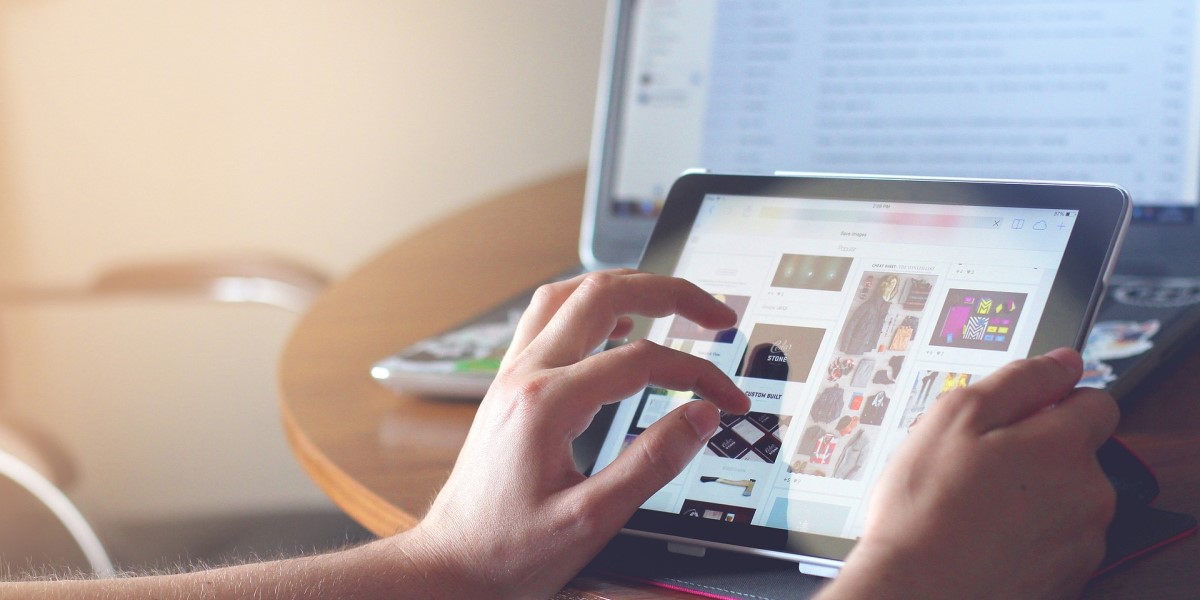A program led by the UMD Extension and UMD INFO College

A new digital literacy resource is advancing throughout the state intending to close the digital divide experienced by the thousands of Maryland residents who lack access to the internet, a digital device, or the skills to utilize either. This program is part of a University of Maryland Extension (UME) initiative in partnership with the College of Information Studies (INFO) working to promote digital literacy, equity, and inclusion throughout the state of Maryland.
Any person residing in Maryland can connect with Marylanders Online, a free, statewide digital literacy project providing computer help, digital tools, and technology support through virtual, one-on-one sessions with Digital Navigators. The toll-free helpline 1-866-206-8467 can be reached Monday through Friday, 10:00 a.m. – 8:00 p.m., and Saturday from 10:00 a.m. to 5:00 p.m., or by emailing marylandersonline@umd.edu.
UME Tech Educators are also available to assist residents with getting developing their computer skills, finding available resources, or applying for the Affordable Connectivity Program (ACP), a federally-funded program providing reduced-rate internet to individuals with low income. Tech Educators are located throughout Maryland and can also travel to on-site locations to assist counties with digital device giveaway programs.
The Realities of the Digital Divide
“Reports show that 23% of the state’s households lack broadband internet service, ” said Mega Subramaniam, associate dean of faculty for the College of Information Studies. “Additionally, there are approximately 290,000 households that don’t have access to a desktop, laptop, or tablet device. The digital divide affects Marylanders across the state, but disproportionately affects rural residents, low-income households, people of color, older adults, and residents of Baltimore City.”
In light of this reality, the state of Maryland has implemented the Connect Maryland Initiative, announced in August 2022 by Governor Larry Hogan. The initiative has allocated $300 million in federal funds from the federal American Rescue Plan Act and an additional $100 million from state funds to statewide digital inclusion. In partnership with the College of Information Studies, the University of Maryland Extension (UME) has received six million dollars to assist it in leading Maryland’s Digital Literacy project, which promotes digital literacy, equity, and inclusion throughout the state of Maryland.
Growing the Digital Ecosystem
The ability to access and use the internet presents a world of services, from healthcare and resources to banking, education, and employment. It is more crucial than ever for people to have access to, and the skills to use, computers, tablets, smartphones, and the internet. There are a variety of reasons that the digital divide exists, from a lack of built infrastructure and income restrictions to a lack of education, information, and device availability. In a state as diverse as Maryland, these barriers are also compounded by a shortage of appropriate cultural and language services that make accessing services more feasible.
A “three-legged stool” analogy was once used to illustrate what were seen as the three primary drivers of the digital divide: lack of internet, devices, and training. Later, the complex nature of digital inequity forced the stool to adopt a fourth and fifth leg: the need for ongoing tech support as well as the need for a collaborative approach to the problem.
When accessibility and affordability were also incorporated as factors essential to the success of digital inclusion, the term “digital ecosystem” was introduced. In Maryland, UME’s Digital Literacy project is already addressing many of these issue areas by helping people get connected with free devices, affordable internet, self-directed and guided training curriculums, and ongoing technical support.
Partnerships Build the Bridge
Free digital inclusion services, however, are only effective if they reach the people who need them most, which is why the UMD Digital Literacy project seeks to develop a groundswell of statewide partnerships to help disseminate this resource information to every corner of the state. UME looks to partner with social services, libraries, schools, hospitals, disability organizations, and any agency willing to help bring these valuable resources to their community. Collaborative partnerships will be the bridge across barriers of language, culture, and even the physical disabilities that may prevent people from learning about Marylanders Online services.
Resources for Partners and People
Partners can access a repository of self-guided training resources to share with their community on the website. Digital Navigators can travel to regional locations to support agencies offering device distribution events by offering on-site device setup and program support. Train-the-trainer programs are also available to empower partnering agencies to offer their own community-based computer training and support services internally.
Partners are encouraged to download and share Marylanders Online promotion materials on the website. Materials are available in PDF, social media, flyer, and brochure format in several languages. Printed versions can also be shipped to agency sites upon request.
Marylanders looking for in-person support can visit a calendar of events on the website, which details when Digital Navigators will be attending local, on-site events right in their county. Also available on the Marylanders Online website are resources for locating WiFi, securing a device, and finding affordable internet options.
In Summary
Marylanders Online is providing free support to Maryland residents and organizations to put an end to the digital divide and promote digital literacy in Maryland. The project seeks to connect communities and people of all ages, locations, and circumstances to these free services by meeting people where they are.
To access or learn about these services visit www.marylandersonline.umd.edu. Digital Navigator navigators can be contacted Monday through Saturday by calling the toll-free hotline at 1-866-206-8467 and are also available via email marylandersonline@umd.edu. Stay up to date with events and happenings by signing up for the Marylanders Online newsletter.
The original article was published by UMD Extension.